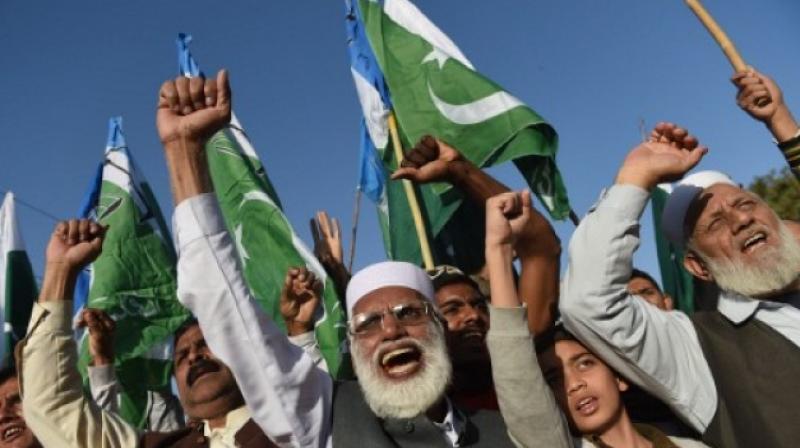Pakistan's 'deep State' is run by its Islamic radical parties
In most cases involving the IJT, no action is taken by the police against its members, thereby allowing the student body a free run.

The recent incident of violence at Punjab University in Pakistan on March 22, perpetrated by the members of the Jamaat-e-Islami (JeI) student wing, Islami Jamiat Taleba (IJT), again raised the question as to why successive provincial and central authorities in Pakistan have not clamped down on the criminal activities of this radicalised student body.
The IJT has a history of indulging in acts of violence/hooliganism and propagating Islamic fundamentalist ideology among university students. In the March 22 incident, it tried to stop a Pakhtun cultural event being organised by students of the university.
No action is taken by the police:
In most cases involving the IJT, no action is taken by the police against its members, thereby allowing the student body a free run, especially in the province of Punjab.
The IJT is one of the largest and the most organised student organisations in Pakistan. The radical ideas of its leaders and the leaders of its mother party, the JeI, are well known. The group has also been accused of misusing university resources, moral policing and beating up students and teachers who failed to adhere to their instructions.
'Million man march':
In October 2011, the group carried out the 'million man march' in Lahore despite the Punjab University authorities denying it the permission and the Punjab provincial administration, including Chief Minister Shahbaz Sharif, refused to do anything to stop the event.
During speeches given on the occasion, JeI chief Munawar Hassan stated that the West was conspiring against Pakistan and the youth must get ready for Jihad. He threatened that a million Osamas would emerge from the Muslim world if the U.S .did not stop its 'anti-Islam' policies.
Regardless of the inflammatory speeches and the march resulting in large scale disruption of life in Lahore, the police inaction was noticeable.
Release of Dr. A.Q. Khan:
Interestingly, in 2008 it was the IJT that had staged a demonstration at the Peshawar University, demanding the immediate release of Pakistani nuclear physicist Dr. A.Q. Khan, who had been placed under house arrest by President Pervez Musharraf in 2004, after the US had provided evidence on his role in the proliferation of nuclear weapons technology.
Prior to his arrest, Khan had been given the position of the 'Father' of Pakistan's nuclear programme and was awarded many times by the government. It was also known that at the behest of the Pakistani intelligence, during his time spent in German and Dutch research centres, Khan had stolen nuclear technology, which was later used to build Pakistan's nuclear capability.
Therefore, though the Pakistani government was forced to place him under house arrest due to Western pressure, within a few years, radical Islamic groups like the IJT demanded his release, an indication of the connection between the Pakistani 'deep State' and these extremist groups.
An alarming increase in the influence:
Over the last few years, there has been an alarming increase in the influence wielded by Pakistan's extremist religious parties, including the JeI, in matters of the State. The deep-rooted radicalised ideology propagated by these groups has been steadily turning the majority Sunni Muslim population of the country towards the more extremist Wahabi stream of Islam. But why is the Pakistani government allowing this to happen'
It is a well-established fact that the Pakistani Army and its intelligence wing, the Inter-Services Intelligence (ISI), maintain a tight control over the country's core State policies. Therefore, while the few democratically elected governments in Pakistan, like the current government of the PMN-L, has maintained the facade of running the country, it's the near permanent 'deep State', comprising of a small group of Army generals and a few politicians and businessmen, who have continued to be de facto rulers.
This 'deep State' realises that its permanence depends on reinforcing the threat from India and the West and on promoting the idea of the Pakistani Army as the only State institution capable of keeping the country safe.
To ensure its relevance internationally, it will continue to work towards keeping the South Asia region unstable and expanding the activities of Pakistan-based and supported terror groups much beyond its borders.

